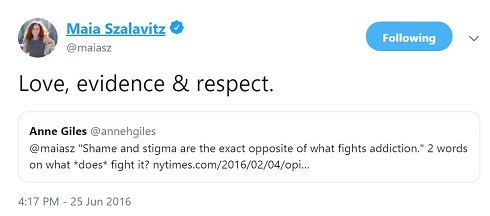Research-Backed Ways to Reduce or Eliminate Substance Use
Learn Evidence-Informed Skills to Address Substance Use Concerns
Recommended reading, in priority order
- Unbroken Brain: A Revolutionary New Way of Understanding Addiction, Maia Szalavitz
- NIDA: Drugs, Brains, and Behavior: The Science of Addiction
- Chapter 4, in Facing Addiction in America: The Surgeon General’s Report on Alcohol, Drugs and Health, November, 2016*
- Changing the Narrative
- Help That Helps: A Kind, Research-Informed, Field-Tested Guide for People with Substance Use Concerns, by Anne Giles, M.A., M.S., L.P.C. and Sanjay Kishore, M.D., July, 2019
Seeking evidence-based care
- Guide to Requesting Medical Care for Substance Use Disorders
- Outline of an Initial, Evidence-Informed Treatment Plan for Substance Use Disorder
- Guide for Clinicians to Initial Treatment for Alcohol Use Disorder
Getting started after receiving medical care
- Self-Kindness Begins with a Self-Hug
- “Sun of Self-Kindness” coloring page by Nichol Brown
- How to Regain Autonomy Over Automaticity
- Approach vs. Avoid Reality Diagram
- Hand drawn graph showing the relationship between events, feelings and thoughts
- If abstinence is the preferred – or mandated – treatment goal: Insider’s Guide to Early Abstinence
- Outplaying the Game of Abstinence Solitaire | Fact Deck | Action Deck
The “Big Four” Awareness Skills
Attention management
- I Strong-Arm My Attention To Help Myself Not Use
- Discovering My Sensory Preferences
- Taking a Sensory Tour of My Locale
Emotion regulation
- Plutchik’s Wheel of Emotions (Here’s a further explanation of Plutchik’s Wheel.)
- The Feeling Wheel by Dr. Gloria Wilcox
- Making an Inner Volume Control Dial with a Paper Plate
Thought-sorting: helpful vs. unhelpful | facts vs. beliefs
- My Brain Is a Thought-Making Machine
- Checklist of Cognitive Distortions by David Burns, Ph.D.
- Common Cognitive Distortions with Simple Definitions
Accessing inner wisdom
- Attention to Awareness of Feelings and Thoughts Offers Access to Inner Wisdom
- Coloring page interpretation of DBT’ “States of Mind” by Christy Mackie
- A Kind, Cost-Benefit Analysis
Awareness Skills Summary
Values and Priorities
What’s next
- Achieving remission from substance use disorders occurs in a context.
- Advanced Awareness Skills

A vista of possibilities
Enrichment
Overview
- I Am a Person with the Health Condition of Addiction
- A Typical Day in the Life of a Person Following an Evidence-Based Treatment Plan for Addiction
- Insider’s Guide to Early Abstinence
Skills
- How Else Can I Help Myself Meet My Needs, Wants, and Preferences?
- How to Help Myself with Feeling Flooded
- Approaching Reality and Self-Soothing
- Working Multiple Awareness Skills at Once to Achieve Remission Efficiently
- Optimize Within Constraints While Doing Time
- Awareness + Action + Kindness Worksheet
These materials are designed to use both simple language and clinical terms so they’re easy to understand and you can do your own research. You’re encouraged to use PubMed to find research articles on topics of interest to you.
“I was in hell,” she said. “And I made a vow: when I get out, I’m going to come back and get others out of here.”
– Marsha Linehan, Ph.D., founder of Dialectical Behavior Therapy (DBT), quoted in the New York Times and expanded upon in her 2020 memoir, Building a Life Worth Living
*The Surgeon General’s Report, published in November, 2016, needs these updates:
- In terms of treatment effectiveness, research data does not support inclusion of 12-step approaches or rehab.
- Research does not support inclusion of naltrexone, or extended release naltrexone, as a primary treatment for opioid use disorder, equivalent to methadone and buprenorphine. Further, naltrexone may be contraindicated for those with liver disease and can be associated with depression. According to Buchel et al., November, 2018, “blocking opioid receptors decreases the pleasure of rewards in humans.”
Proposed future courses
- Assisting A Person Who Has Substance Use Concerns: A Guide for Partners, Parents and Employers (Here are portions of the content: How to Help a Loved One with Addiction: An Evidence-Informed Approach | How to Help People With Addiction Who Are Mandated to Abstinence | Suggestions for Parents and Partners) | NIDA
- How to Self-Administer Treatment for Trauma (Here’s an overview.)
- Skills for Addressing Overuse of the Internet (Here’s an overview.)
- Using Advanced Awareness Skills to Support Remission (Here’s an overview.)
Last updated 6/9/20
This content is for informational purposes only and is not a substitute for medical or professional advice. Consult a qualified health care professional for personalized medical and professional advice.

